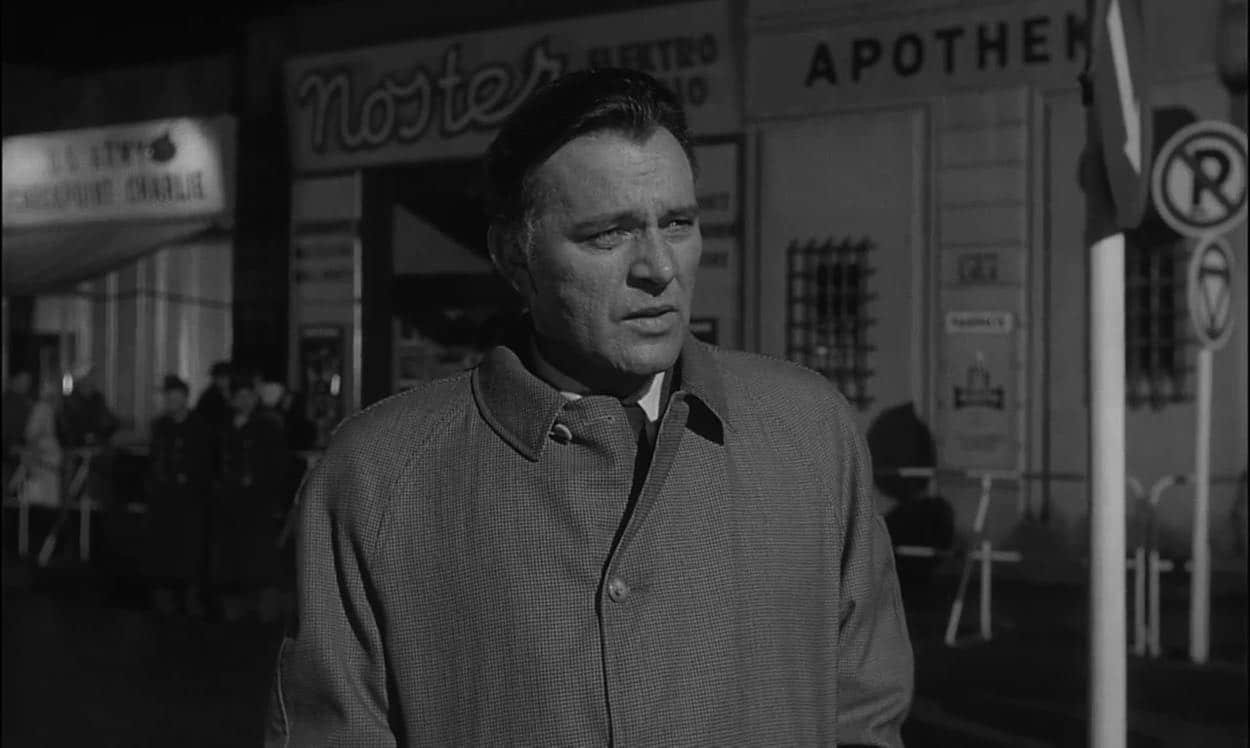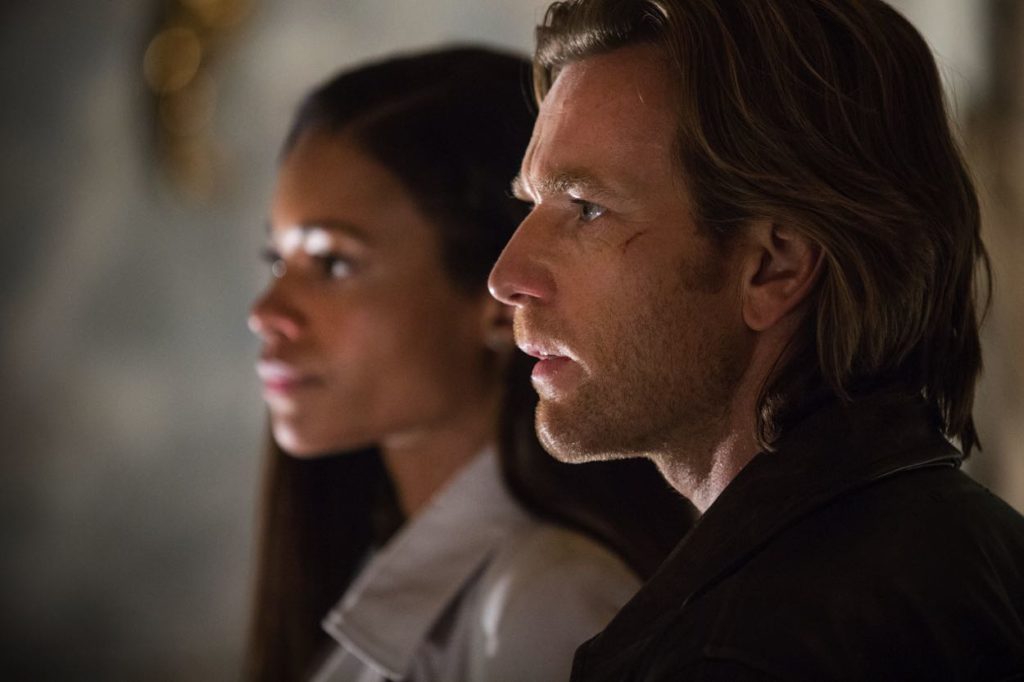There is a lot of John Le Carré out there. The author wrote prodigiously, starting while he was still working as a spy for MI5 and MI6 in the late 1950s and only really stopped when he died, in December 2020. There are nine novels featuring his most famous creation, the retired master spy George Smiley, and another 17 or so (depending on how you count) other novels, plus short stories, essays, memoirs, articles written for newspapers (denouncing the war in Iraq, for instance) and screenplays (always adaptations of his own novels).
But there’s no getting round it, if you want a John Le Carré experience, the movies are probably the worst way to get one. The books are by far the best, because they give Le Carré space to lay out his worldview and spin his intricate webs. For the same reason – space – the TV miniseries also works well, with 1979’s Tinker Tailor Soldier Spy, starring Alec Guinness, probably unbeatable as the definitive screen Le Carré, though there’s also a lot to be said for 2016’s The Night Manager, starring Tom Hiddleston. After TV, the audio versions are the way to go, particularly the BBC’s excellent The Complete Smiley, featuring Simon Russell Beale as a very Alec Guinness-tinged George Smiley.
And after all that, the film versions. Le Carré is all about intricate plotting and texture, and the two-hours-ish running times of most big- or small-screen movies simply isn’t enough for the magic to exert itself. However, some pull it off, others don’t.
For the purposes of this rundown I’m including all the standalone Le Carrés, whether made for cinema or TV. They’re a mixed bunch, ranging from the exceptional to the diabolical.
I’ve watched them all (bar one) and here’s how I rank them, from worst to best, and why.
The End of the Line
A BBC standalone Le Carré made in 1970 as part of the Armchair Theatre TV strand. The Germans would remake it three years later as Endstation – both are two-handers about a clergyman and an older gent sharing a train carriage on a journey from Edinburgh to London. Both men are spies but neither is saying so. Ian Holm and Robert Harris take the leads in the British version, Hans Schweikart and Peter Striebeck in the German one. I’ve seen neither, so won’t comment.
The Little Drummer Girl
Like Florence Pugh, decades later in the TV adaptation, Diane Keaton was undone in 1984 by a confusing story about an actress being recruited by the Israeli secret service to undermine the Palestinian cause she so vehemently champions. How? Why? It’s probably best not to ask. Le Carré has tied himself in knots trying (and failing) to work his Cold War modus operandi into a new theatre of operations, the Middle East. It’s nicely, unfussily directed, by George Roy Hill, and there’s a chance to see a relatively restrained Klaus Kinski do his thing, as an Israeli version of George Smiley.
A Murder of Quality
George Smiley moonlights as a private detective in a straightforward 1991 TV movie whodunit that looks as if it’s made for Sunday evening audiences in need of reassurance. A young Christian Bale joins troupers like Glenda Jackson, Joss Ackland and Billie Whitelaw and though it’s a bland and unsurprising Le Carré, Denholm Elliott does manage to cut through as Smiley – lighter and fruitier than Alec Guinness’s, in a tale that all comes down to the fine distinctions between various castes of hidebound Brits.
The Looking Glass War
Ralph Richardson and Anthony Hopkins turn up in this 1970 Le Carré adaptation but it’s the relatively obscure Christopher Jones who’s the star, as the handsome sailor recruited to go behind the Iron Curtain to winkle out secrets. Jones is fine, even though his long-haired, Warren Beatty-esque character is patently absurd, a sign that the film is playing to the countercultural youth of the day, a decision which kills any chance of the film being a success.
A Most Wanted Man
John Le Carré’s stories are often about the dull plod of everyday spying. A film’s problem is to render that on the screen and yet keep some excitement there. Director Anton Corbijn drenches his 2014 Le Carré outing with stylistic flourishes similar to the ones he brought to The American – this is a very cool film – and he has a cast of spectacular international dimension (Philip Seymour Hoffman, Grigoriy Dobrygin, Nina Hoss, Daniel Brühl, Rainer Bock, Robin Wright, Rachel McAdams, Willem Dafoe). But in the same way that Le Carré’s novels often struggled in the post 9/11 world, Corbijn struggles here in his attempt to inject a spark into a film that is in most other respects brilliant.
The Tailor of Panama
A real mix of the fine and the not so much in this 2001 adaptation of Le Carré’s excursion into Graham Greene territory – a central America full of sweaty generals and downmarket spies. Pierce Brosnan – between 1999’s The World Is Not Enough and 2002’s Die Another Day – shows there’s more than one spy in his acting arsenal, and the rest of the cast is genuinely interesting and includes Geoffrey Rush, the largely superfluous Jamie Lee Curtis and playwright Harold Pinter (in a rare screen role). As for Brendan Gleeson as a Panamanian freedom fighter – not his finest hour.
Our Kind of Traitor
Blameless prof Ewan McGregor and lawyer wife Naomie Harris get caught up in the money-laundering machinations of Russian oligarch Stellan Skarsgård in Marrakech in a textbook “Le Carré on the big screen” movie. It looks great, it’s sexy enough and the cast (including the excellent Damian Lewis) is great. With McGregor once rumoured as “the next James Bond” and with Harris (the current Miss Moneypenny) in the cast, it’s clearly aiming for a bit of 007 lustre. But there just isn’t enough air in there to let Le Carré’s textures interweave and so the full weight of the betrayal/loyalty theme is never quite felt.
Tinker Tailor Soldier Spy
What played out over nearly 400 pages in print and nearly five hours on the TV suffers from being condensed to the point where the intricacies of what is surely John Le Carré’s most finely plotted story start to get lost. Still, there’s always Tomas Alfredson’s direction to admire, and the sheer 1970s look of the 2011 movie is probably unsurpassed – reel-to-reel tape recorders, nicotine-coloured ceilings, the full analogue world. Tom Hardy’s 21st-century speech patterns are a problem, but it’s a dependable cast – John Hurt, Mark Strong, Toby Jones, Gary Oldman, Colin Firth, Benedict Cumberbatch.
The Russia House
For this doubter, both Sean Connery and Michelle Pfeiffer are surprisingly effective in this 1990 adaptation whose USP was that it was shot in Moscow as Gorbachev’s Glasnost made it possible for lickspittle running dogs of capitalism to film there for the first time in decades. Connery is a tweedy, boozy publisher recruited by the British secret service, Pfeiffer the Russian he’s targeting. It packs a lot in, and director Fred Schepisi sometimes forgets that he’s making a spy thriller. But it’s a looker, in every sense.
The Constant Gardener
This 2005 adaptation of Le Carré’s “Big Pharma” novel still bears all the hallmarks of his spying oeuvre – duplicity, grinding bureaucracy, the personal cost of loyalty to an idea – and features a methodical, very Le Carré character at its centre. Ralph Fiennes plays the plodding diplomat kicked into life by the death of his activist wife (Rachel Weisz) in an Africa where Aids and corporate colonialism stalk the continent.
The Deadly Affair
Paramount owned the name George Smiley and so James Mason goes by Charles Dobbs in this excellent 1967 adaptation of Le Carré’s first novel, Call for the Dead. It’s directed at pace by Sidney Lumet, is photographed in appropriately stygian gloom by the great Freddie Young and its superb cast includes Simone Signoret, Harriet Anderson, Harry Andrews and Maximilian Schell.
The Spy Who Came In from the Cold
The first and the best of the Le Carré adaptations, largely because it sticks closely to what Le Carré was all about – compromised people in compromised situations. Richard Burton’s performance – as a drunk and broken man given another chance at redemption by playing a “defecting” spy sowing misinformation in East Berlin – is a great one, and of a piece with director Martin Ritt’s film making spying look about as unglamorous as it could get.
Almost all the screen Le Carré adaptations can be found on this Amazon page
Highly recommended: The Complete George Smiley radio dramas – also at Amazon
I am an Amazon affiliate
© Steve Morrissey 2021

